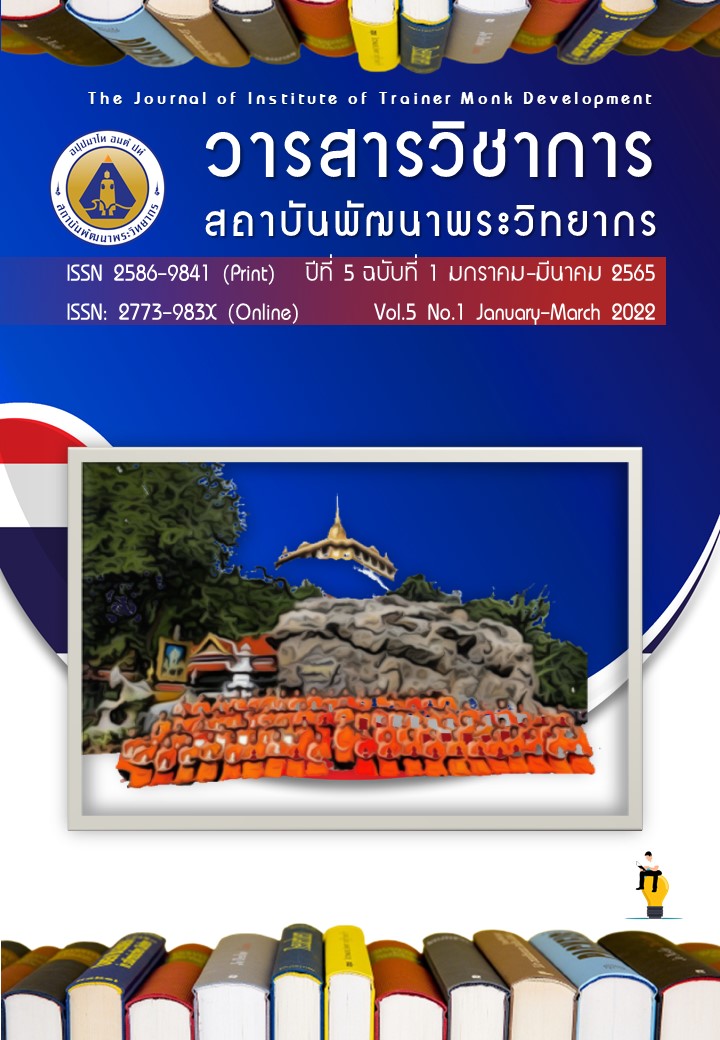THE IDENTITY OF KASETSART UNIVERSITY ENGINEERING STUDENTS
Main Article Content
Abstract
The purposes of this research were: 1) to identify the components of the students’ identity in the Faculty of Engineering, Kasetsart University, Kamphaeng Saen Campus; and 2) to affirm the results of the confirmatory test of students’ identity elements of the Faculty of Engineering Kasetsart University, Kamphaeng Saen Campus. The samples chosen by means of the stratified random sampling method comprised the total number of 450 research participants. Of these, there were 226 faculty members equally distributed in proportion to their administrative positions, and 224 students equally distributed in proportion to their years of study, with a helping hand of the semi-structured interview opinion questionnaire (overall confidence level of the survey questionnaire = .986), and another set of questionnaires of the confirmatory test of students’ identity elements of the Faculty of Engineering Kasetsart University. The statistics employed in this research were frequency, percentage, arithmetic mean, standard deviation, as well as exploratory component analysis content analysis
The findings revealed that:
- Components of the students’ identity of the Faculty of Engineering Kasetsart University consist of 6 components, 72 variables, as follows: 1. Knowledge and competence in engineering (34 variables), in which 3 sub-components could be derived from when further analyzing, i.e. 1.) Engineering skills (17 variables), 2.) Analytical thinking (12 variables), and 3.) Engineering techniques (5 variables); 2. Readiness to be an engineer (10 variables); 3. Knowledge of fundamental engineering subjects (10 variables); 4. Teamwork skills (9 variables); 5. Capability of applying engineering technology (6 variables); and 6. Professional ethics of engineers (3 variables).
- Results obtained from this research of the confirmation of the students, identity of the Faculty of Engineering Kasetsart University was verified with accuracy, propriety, feasibility and utility.
Article Details

This work is licensed under a Creative Commons Attribution-NonCommercial-NoDerivatives 4.0 International License.
บทความที่ได้รับการตีพิมพ์เป็นลิขสิทธิ์ของวารสารวิชาการสถาบันพัฒนาพระวิทยากร
ข้อความที่ปรากฎอยู่ในบทความที่ได้รับการตีพิมพ์ในวารสาร ถือเป็นความรับผิดชอบของผู้เขียนบทความ และข้อคิดเห็นนั้นไม่ถือว่าเป็นทัศนะและความรับผิดชอบของกองบรรณาธิการวารสารวิชาการสถาบันพัฒนาพระวิทยากร
References
วณิชชา แม่นยำ และคณะ. (2557). เทคโนโลยีการศึกษากับครูไทยในศตวรรษที่ 21. วารสารปัญญาภิวัฒน์, 5(ฉบับพิเศษ), 196-211.
สำนักงานคณะกรรมการการอุดมศึกษา. (2564). การประชุมเชิงปฏิบัติการกรอบมาตรฐานคุณวุฒิ : การเขียนและการประเมินผลอย่างมีประสิทธิภาพ. เข้าถึงเมื่อ 27 พฤษภาคม 2564. เข้าถึงได้จาก http://www.mua.go.th/users/tqf-hed/news/FilesNews2/tqf2011.pdf
มหาวิทยาลัยเกษตรศาสตร์. (2559). คู่มือการประกันคุณภาพกิจกรรมนิสิต ประจำปีการศึกษา 2559. เข้าถึงเมื่อ 27 พฤษภาคม 2564. เข้าถึงได้จาก http://sa.sa.ku.ac.th/pdf
สำนักงานประกันคุณภาพ มหาวิทยาลัยเกษตรศาสตร์. (2558). “รายงานประกันคุณภาพภายในระดับอุดมศึกษา (IQA KU) ประจำปีการศึกษา 2557.” 30 กันยายน 2558.
Choe, Nathan H., et al. (2019). Professional aspects of engineering: improving prediction of undergraduates’ engineering identity. Journal of Professional Issues in Engineering Education and Practice 145(3): 1-20.
Dehing, A., W. Jochems, and L. Baartman. (2013). The development of engineering students’ professional identity during workplace learning in industry: A study in Dutch bachelor education. Engineering Education 8(1): 42-64.
Murphy, Mike, Shannon Chance, and Eddie Conlon. (2015). Designing the identities of engineers. Engineering identities, epistemologies and values. 41-64.
Keshwani, Jennifer, and Krista Adams. (2017). Cross-disciplinary service-learning to enhance engineering identity and improve communication skills. International Journal for Service Learning in Engineering, Humanitarian Engineering and Social Entrepreneurship 12(1), 41-61.
Alonso, Renata Alejandra Revelo. (2015). Engineering familia: The role of a professional organization in the development of engineering identities of Latina/o undergraduates. University of Illinois at Urbana-Champaign.
Godwin, Allison, and Walter C. Lee. (2017). A cross-sectional study of engineering identity during undergraduate education. American Society for Engineering Education.
Andriot, Angie Lynn. (2011). Gender and engineering identity development among undergraduate majors. Purdue University.
Rohde, Jacqueline, et al. (2019). Design experiences, engineering identity, and belongingness in early career electrical and computer engineering students. IEEE Transactions on Education 62 (3): 165-172.
Huff, James L. (2014). Psychological journeys of engineering identity from school to the workplace: How students become engineers among other forms of self. Diss. Purdue University.
Arias Gallegos, Walter L., et al. (2019). Professional Preferences and Professional Identity in Engineering Students from a Private University in Arequipa. Journal of Educational Psychology-Propositosy Representaciones 7(2): 178-195.


